 W
WThe Fédération Internationale de l'Automobile is an association established on 20 June 1904 to represent the interests of motoring organisations and motor car users. To the general public, the FIA is mostly known as the governing body for many auto racing events, such as the well known Formula One. The FIA also promotes road safety around the world.
 W
WDiesel 2000 is an FIA circuit racing classification for modified production based touring cars using turbodiesel engines.
 W
WThe FIA European Truck Racing Championship is a motorsport road racing series for semi-tractors which is sanctioned to the Fédération Internationale de l'Automobile and is organised by ETRA Promotion GmbH.
 W
WExtreme E is an FIA-sanctioned international off-road racing series that uses spec electric SUVs to race in remote parts of the world, such as the Amazon rainforest or the Arctic. All racing locations are chosen to raise awareness for some aspects of climate change and Extreme E maintains a "Legacy Programme" which intends to provide social and environmental support for those locations. The first season is planned to start in April 2021.
 W
WThe FIA Formula 3 European Championship was a European Formula Three auto racing competition, organised by the Fédération Internationale de l'Automobile (FIA). After one season of the FIA Formula 3 International Trophy, the FIA revived the FIA Formula 3 European Championship. The ten-event season included seven Formula 3 Euro Series rounds, two British Formula Three rounds and DTM-supporting round at Brands Hatch. From 2013, the series started running its own rounds, based upon the defunct Formula 3 Euro Series.
 W
WFIA European Formula 3 Championship was a former European Formula Three racing competition, organised by the FIA.
 W
WThe FIA GT Championship was a sports car racing series organized by the Stéphane Ratel Organisation (SRO) at the behest of the Fédération Internationale de l'Automobile (FIA). The championship was mostly concentrated in Europe, but throughout the years has visited other continents including Asia and South America. At the end of 2009, the championship was replaced by the FIA GT1 World Championship, which morphed into the FIA GT Series for 2013.
 W
WThe FIA Masters Historic Formula One Championship is a championship that has old Formula One cars from "the golden era", which caters for 3-litre engine Formula 1 cars from 1966 to 1985.
 W
WThe World Motor Sport Council (WMSC) is a major organ within the Fédération Internationale de l'Automobile's governance structure. Its primary role is amending current regulations and drafting new regulations for all of international motor sport. One of the main duties of the WMSC is to allow motor sport to: Continue to develop with an emphasis on maintaining safety for the drivers and spectators, and to encourage competitive motoring innovation which adheres to environmental standards. The FIA's largest motorsport championships include the FIA Formula One World Championship, the World Endurance Championship (WEC), and the FIA World Rally Championship. The World Motor Sport Council's membership is chosen by the FIA General Assembly, which contains representatives from national automobile clubs (ASNs) throughout the world. It is one of two FIA World Councils; the other council is responsible for administrating "issues affecting the automobile in society. The World Motor Sport Council meets a minimum of three times a year to consider proposals from specialist FIA Commissions and subsidiaries. It has a current membership of 28 members, including the FIA President Jean Todt and Formula One chairman Stefano Domenicali.
 W
WThe FIA WTCR Race of Korea is a round of the World Touring Car Championship that will be held at Inje Speedium in Inje. The circuit is due to host the eighth round on the 16th of October.
 W
WThe Group 1 racing class referred to regulations for cars in touring car racing and rallying, as regulated by the FIA. The Group 1 class was replaced by Group N in the early 1980s.
 W
WThe Group 2 racing class referred to regulations for cars in touring car racing and rallying, as regulated by the FIA. Group 2 was replaced by Group A in 1982.
 W
WThe Group 4 racing class referred to regulations for cars in sportscar racing, GT racing and rallying, as regulated by the FIA. The Group 4 class was replaced by Group B for the 1983 season.
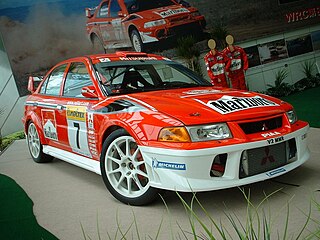 W
WGroup A was a set of motorsport regulations introduced by FIA covering production-derived vehicles intended for outright competition in touring car racing and rallying. In contrast to the short-lived Group B and Group C, the Group A referred to production-derived vehicles limited in terms of power, weight, allowed technology and overall cost. Group A was aimed at ensuring numerous privately owned entries in races.
 W
WGroup B was a set of regulations introduced in 1982 for competition vehicles in sportscar racing and rallying regulated by the Fédération Internationale de l'Automobile (FIA). The Group B regulations fostered some of the fastest, most powerful, and most sophisticated rally cars ever built and is commonly referred to as the golden era of rallying. However, a series of major accidents, some of them fatal, were blamed on their outright speed and lack of crowd control at events. After the death of Henri Toivonen and his co-driver Sergio Cresto in the 1986 Tour de Corse, the FIA disestablished the class, dropped its previous plans to replace it by Group S, and instead replaced it as the top-line formula by Group A. The short-lived Group B era has acquired legendary status among rally fans and automobile enthusiasts in general.
 W
WGroup C was a category of motorsport, introduced by the FIA in 1982 and continuing until 1993. Group C applied to sports car racing, with Group A for touring cars and Group B for GTs.
 W
WGroup GT1 also known simply as GT1, was a set of regulations maintained formerly by the Fédération Internationale de l'Automobile (FIA), for Grand Tourer racing. The category was first created in 1994, as the top class of the BPR Global GT Series, and was included in the 24 Hours of Le Mans. It fell under FIA regulation from 1997, after the BPR series came under the control of the FIA, becoming known as the FIA GT Championship. The category was dissolved at the end of 2011. The category may be split into 4 distinctive eras, from its debut in 1994–1996, 1997–1998, 2000–2009, 2010–2011.
 W
WGroup GT3, known technically as Cup Grand Touring Cars and commonly referred to as simply GT3, is a set of regulations maintained by the Fédération Internationale de l'Automobile (FIA) for grand tourer racing cars designed for use in various auto racing series throughout the world. The GT3 category was initially created in 2005 by the SRO Group as a third rung in the ladder of grand touring motorsport, below the Group GT1 and Group GT2 categories which were utilized in the SRO's FIA GT Championship, and launched its own series in 2006 called the FIA GT3 European Championship. Since then, Group GT3 has expanded to become the de facto category for many national and international grand touring series, although some series modify the ruleset from the FIA standard. By 2013, nearly 20 automobile manufacturers have built or been represented with GT3 machines.
 W
WThe Group N-GT was a motor racing category launched by the Fédération Internationale de l'Automobile in 2000. The first cars were homologated on 1 March, 2000 by Porsche and Ferrari. A total of eight different models from six marques were homologated throughout the class existence.
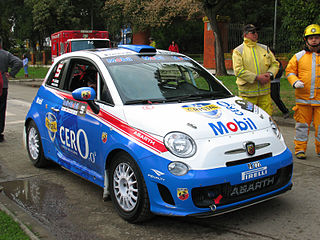 W
WIn relation to motorsport governed by the Fédération Internationale de l'Automobile, Group R refers to a set of regulations providing production-derived vehicles for rally competition. The Group R regulations were created in 2008 as a gradual replacement for Group A and Group N rally cars. To comply with Group R regulations, a car must be homologated in Group A and receive one or more VR extensions. Each VR extension is a set of homologated parts and modifications, designed and sold by the manufacturer. As part of its structure, the Group R regulations have a provision for GT cars, known as R-GT.
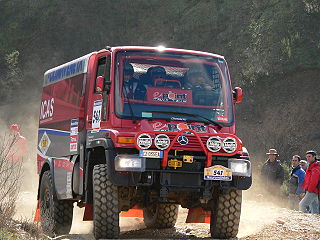 W
WThe Fédération Internationale de l'Automobile launched Group T4 in 1990 to facilitate rally trucks in rally raid competitions. The regulations are included in appendix J of the International Sporting Code.
 W
WThe FIA International Championship for Manufacturers (IMC) was a rally series culminating in a champion manufacturer. The championship was run from 1970 to 1972 and it was replaced by the FIA World Rally Championship in 1973. All the nine rallies of the 1972 IMC season were part of the 1973 World Rally Championship season.
 W
WIn international rallying, R5 refers to a class of cars competing under Group R regulations. R5 regulations were introduced by the Fédération Internationale de l'Automobile (FIA) in 2012 as a replacement for the Super 2000 class. R5 cars are based on production cars and feature a 1600cc turbocharged petrol engine. In competition, R5 cars are known as Rally2 cars.
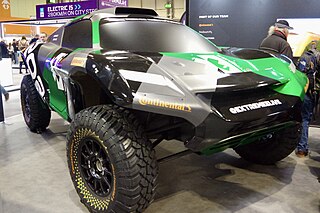 W
WThe Spark ODYSSEY 21, also known as Odyssey 21 is an electric off-road competition car specially designed for use in the Extreme E series, a proposed class of auto racing that only uses electric vehicles to race off-road in extremely remote parts of the world using electric SUVs.
 W
WThe FIA World Endurance Championship is an auto racing world championship organized by the Automobile Club de l'Ouest (ACO) and sanctioned by the Fédération Internationale de l'Automobile (FIA). The series supersedes the ACO's former Intercontinental Le Mans Cup which began in 2010 and is the first endurance series of world championship status since the demise of the World Sportscar Championship at the end of 1992. The World Endurance Championship name was previously used by the FIA from 1981 to 1985.
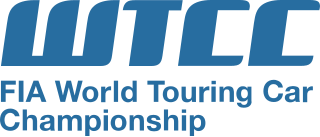 W
WThe FIA World Touring Car Championship was an international touring car championship promoted by Eurosport Events and sanctioned by the Fédération Internationale de l'Automobile (FIA). It has had several different incarnations, including a single season in 1987 as the World Touring Car Championship and most recently a world championship (WTCC) that has run between 2005 and 2017. Following the 2017 season, an agreement was reached for the FIA WTCC to become FIA WTCR and use the TCR technical regulations.
 W
WThe FIA World Touring Car Cup is an international touring car championship promoted by Eurosport Events and sanctioned by the Fédération Internationale de l'Automobile (FIA). It has had different incarnation of a World Touring Car Cup held between 1993 and 1995. Following the 2017 season, an agreement was reached for the World Touring Car Championship to become WTCR and use the TCR technical regulations. With titles for drivers and teams only, the WTCR series changed to 'World Cup' rather than 'World Championship' status in 2018.